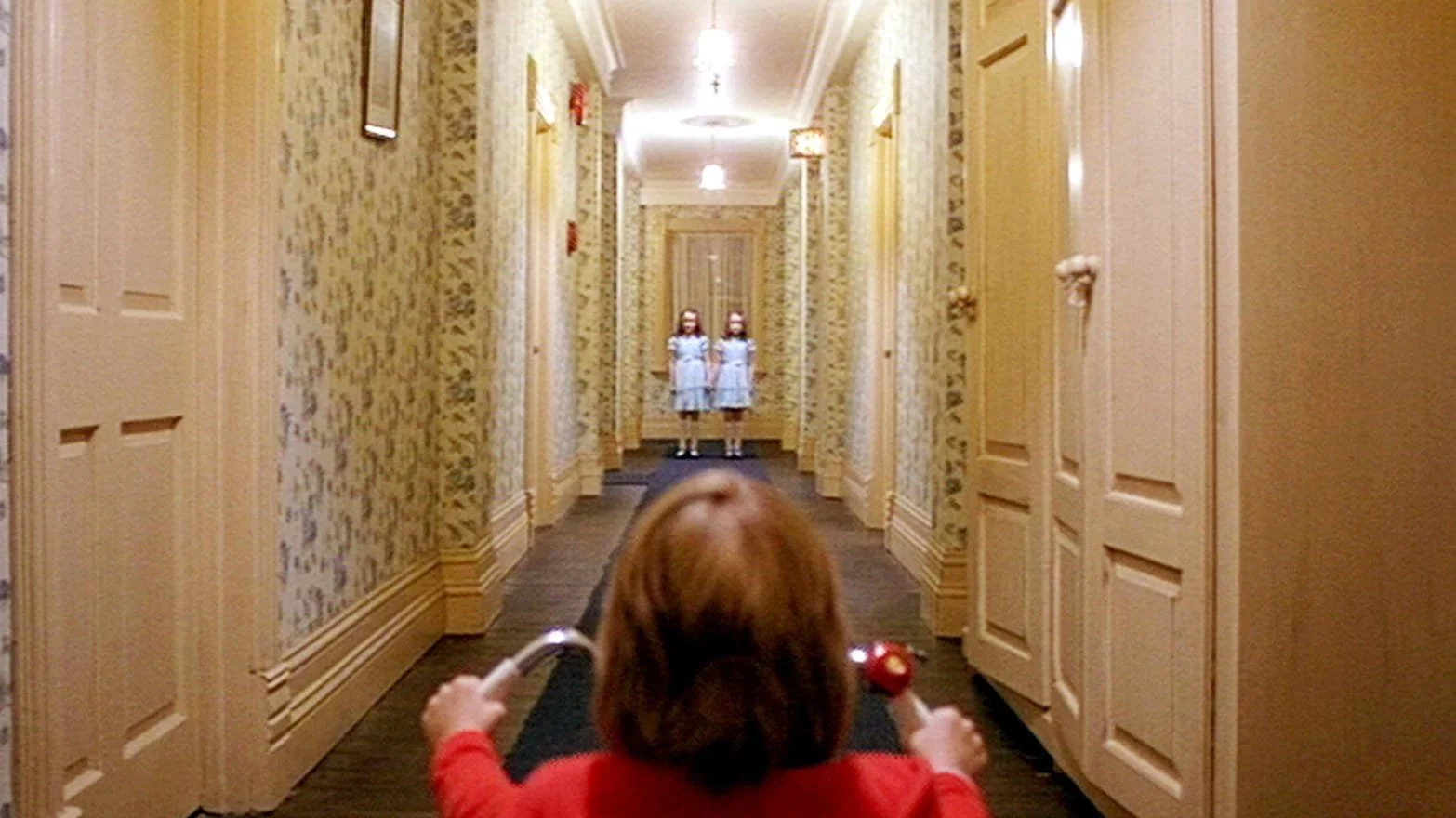Room 237 Is a Mesmerizing Exploration of Cinematic Obsession
For the conspiracy theorists of the 2012 cult classic Room 237, The Shining director Stanley Kubrick was infinitely more than just an almost preternaturally gifted auteur. In Room 237, Rodney Ascher’s hypnotic exploration of the shadowy depths of pop culture obsession, Kubrick emerges as something closer to a Trickster God or mad prophet.
Kubrick was a giant in life. He looms even larger in death, to the point where Gucci just unleashed a new campaign based on the dead director’s oeuvre. It’s artless, tacky and mercenary but it speaks to just how much valuable real estate the late filmmaker continues to occupy in the public mind.
Kubrick was the J.D. Salinger of filmmaking. Because the public knows so little about Kubrick the man we’re able to recreate him in our own image, as a peculiar prophet who conveniently happens to share our interests, even if he chose to express those obsessions through riddles and puzzles, intimation and suggestion.
Room 237’s online acolytes see The Shining not just as a uniquely scary horror film or a once-in-a-lifetime collaboration between arguably our greatest filmmaker and our most successful author but rather a mystery to be solved or a riddle with a definitive answer. For these fascinatingly misguided eccentrics, The Shining serves as a cinematic Rorschach blot whose ultimate meaning changes dramatically according to who is looking at it.
The theorists of Room 237 are each convinced they’ve unearthed the secret, essential meaning of The Shining when the meaning of King’s novel, at least, is obvious. King was formerly an alcoholic and cocaine addict who was concerned, understandably, that his dangerous compulsions would destroy his family unless he was able to control them, and by extension, himself.
Much of the reason King consequently despises one of the most revered and iconic adaptations of his work is because Kubrick shifted the focus from addiction to the pervasiveness of evil, from something painfully personal to a look at wickedness on more of an institutional, inter-generational level.
The excessively imaginative film fans refuse to accept that The Shining might just be a movie and Kubrick might just be a filmmaker. They’re convinced that an enigmatic, reclusive super-genius like Kubrick, a true master of cinema, must have been playing a bigger game. So they follow the breadcrumbs ostensibly left by the late filmmaker and arrive at conclusions that seem crazy and wrong on the surface and only slightly less egregiously insane with exhaustive explanations.
Is The Shining Kubrick’s kooky confession that he helped NASA fake the moon landing, folded seamlessly into a taut, suspenseful fright flick about madness and toxic masculinity? Or is The Shining actually all about the Holocaust or the genocide of Native Americans? Or does the secret to understanding the all important secret message of The Shining lie in watching it backwards and forwards simultaneously?
Room 237 playfully contemplates each of these unlikely but intriguing scenarios without endorsing any because they are, if not necessarily transparently false, then at least sketchy and fatally flawed on a primal level.
That’s the essence of conspiracy theories. We’re not attracted to them because they’re true. Instead, they’re irresistible to a certain paranoid mindset precisely because they might be true.
They’re not a truth, incontrovertible or otherwise, but rather an alluring possibility. Once the film’s true believers lock onto what they see as The Shining’s ultimate meaning they then go looking for clues to support their theses. And if there is one truth above all others when it comes to conspiracy theories it’s that if you go looking for something intensely enough you’re going to eventually find it whether it actually exists or not.
They have fun!
The armchair film scholars of Room 237 accordingly find evidence for their deep-seated convictions where saner, more skeptical souls might see coincidence or the inevitable glitches and goofs that come with a filmmaker famously shooting the same scene 60 or 70 times in order to realize his exacting vision.
Alternately, it could be argued that what the film’s theorists see as clear proof of their rightness is instead the director of Dr. Strangelove deliberately fucking with audiences who saw him as superhuman by including lots of wacky randomness that may ultimately serve no greater purpose than amusing the dark humorist in the moment. The Shining is a horror film above all else but it is also a very dark, very brutal, very funny comedy. That The Shining is supposed to be funny and weird as well as scary and intense is seemingly lost on theorists who instead see it as a work of revelation and prophecy rather than a brutal black comedy about writer’s block and the world’s worst case of the winter blahs.
We tellingly never see the faces of the Kubrick theorists. Instead, Ascher plays with footage from The Shining, Kubrick’s films and random pop detritus in a way that ostensibly illustrates and dramatizes the theories at play but undermines and satirizes them at the same time.
Room 237 takes the Cult of the Auteur to comic extremes. It portrays The Shining’s director not just as important but God-like in his infinite powers. The theorists see Kubrick as so powerful, purposeful and deliberate that his masterful machinations transcend death. In their mind he’s still the dungeon master making up the rules of a game so vast yet esoteric that Kubrick’s hardcore fans don’t seem to realize it even exists.
For the film’s true believers The Shining is no mere art or entertainment. It’s closer to religion, with Kubrick’s violently unfaithful adaptation of Stephen King’s best-seller as its key text, its bible, its Old and New Testament.
The excessively imaginative film freaks of Room 237 have deluded themselves into thinking that they have a personal relationship with Kubrick that exists only in their overly vivid imaginations.
Room 237 captures the infectious insanity of film fandom in an internet era, where films are treated as a code to be cracked instead of entertainment to be consumed or art to be savored.
Ascher’s quietly spellbinding meditation on Kubrick’s complicated legacy is ultimately extremely revealing. But it says infinitely more about it the conspiracy theorists at its core than it does about Kubrick, who emerges, as always, as a gloomy, intimidating cipher who can be studied and analyzed but never truly understood.
Would you like a book full of pieces just like this? Of COURSE you would! Pre-order The Fractured Mirror, the Happy Place’s next book, a 600 page magnum opus about American films about American films, illustrated by the great Felipe Sobreiro over at https://the-fractured-mirror.backerkit.com/hosted_preorders
The Joy of Trash, the Happy Place’s first non-"Weird Al” Yankovic-themed book is out! And it’s only 16.50, shipping, handling and taxes included, 30 bucks for two books, domestic only!
Buy The Joy of Trash, The Weird Accordion to Al and the The Weird Accordion to Al in both paperback and hardcover and The Weird A-Coloring to Al and The Weird A-Coloring to Al: Colored-In Special Edition signed from me personally (recommended) over at https://www.nathanrabin.com/shop
Or you can buy The Joy of Trash here and The Weird A-Coloring to Al here and The Weird Accordion to Al here
Help ensure a future for the Happy Place during an uncertain era AND get sweet merch by pledging to the site’s Patreon account at https://www.patreon.com/nathanrabinshappyplace We just added a bunch of new tiers and merchandise AND a second daily blog just for patrons!
Alternately you can buy The Weird Accordion to Al, signed, for just 19.50, tax and shipping included, at the https://www.nathanrabin.com/shop or for more, unsigned, from Amazon here.
I make my living exclusively through book sales and Patreon so please support independent media and one man’s dream and kick in a shekel or two!







